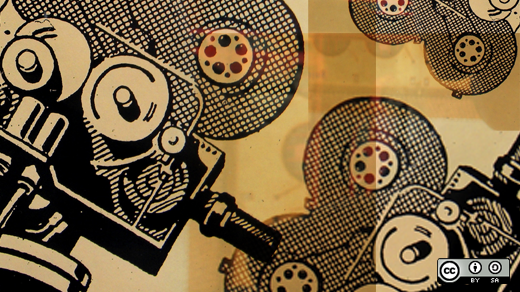The answer to stabilizing content and price is letting artists retain greater control of their work.
Louis C.K. likes to do things himself. He likes having control over his work and being able to share the process and proceeds however he likes. It seems to be successful. In December, he made more than a million dollars--in 12 days--from a DRM-free and modestly priced video he created and posted to his website.
Louis C.K. is a comedian. His TV show on FX, Louie, is a comparatively low-budget, largely biographical affair. FX paid about $200,000 for the pilot and $250,000 per episode ($300,000 per episode for season two). He had to produce the show out of that money, leaving far less than most TV stars make (and far less than other networks might have offered). But there was one alluring catch: full editorial control.
Editing and production work for the show isn’t done in the studio, by executives and professional editors. It’s done by Louis C.K., at home on his laptop, using a combination of software tools that video enthusiasts might be familiar with.
The development process is insular--Louis doesn’t have to submit a script for approval or show the rough cut to producers. He and his crew film and put together each show, and then he gives the final product to FX. They air it.
It’s one stunningly simple way to streamline the production process.
How do we know these kinds of things? Because Louis C.K. talks about it. Sometimes in his stand-up, sometimes just because someone asked. (It was refreshing to see his QnA on Reddit recently. Refreshing and hilarious.) His comedy is very transparent, but so are his goals and process.
Given that it’s worked thus far for Louie--and that Louis C.K. was annoyed with the arduous and largely low-profit process of producing comedy specials, not to mention the edited and garbled results--he decided to take a shot at making one himself.
He took the profits from a stand-up show (again, roughly $250,000) and used it to pay for the cost of filming, production, and building a website with the tools he’d need to handle streaming and downloaded video. On December 9, 2011, he released a live recorded comedy show for $5 (payable through PayPal) on his own website, DRM-free. He wrote a nice note, explaining what he’d done and why. By December 13, he knew he’d succeeded. By December 21, he’d made quite a profit. From his blog:
“One million dollars. That's a lot of money. Really too much money. I've never had a million dollars all of a sudden, and since we're all sharing this experience and since it's really your money, I wanted to let you know what I'm doing with it.”
He was specific--real figures, later verified by any number of news outlets that jumped on the story. A quarter of the profits paid back his investment (to create the video and website). He kept a second quarter of it to pay for his personal expenses, and “do terrible, horrible things with” that aren’t “any of your business.” Brutal honestly, perhaps, but that makes sense--after all, artists should profit from their art.
But what did he do with the other half-million?
Half a million dollars that would have been wasted on executives and network flunkies instead went to charity, and--in a stunningly sweet move--to the people who work for Louis C.K. directly, and helped make the film possible. He said, pretty plainly, “I'm giving them a big fat bonus.”
There are lots of counter-arguments to be made--only the wealthiest artists can afford to do it this way (sort of true, at this level of production anyway), that the people who work for him are no different from the record company people who would have been paid in the traditional corporate approach (maybe), or that lots of other artists have tried the same experiment and it only works sometimes (debatable).
But what is true here (and what was, I think, the point of Louis C.K.’s experiment) is that that if you make it as easy as possible to obtain content that is as usable as possible and priced as reasonably as possible, then as many people as possible will make an effort to pay for it, rather than download it illegally for free. And that’s why freedom works.
More resources
Other stories about the Louis C.K. DIY experiment:
- Google news search
- Seattle Weekly: DIY, the luxury of the rich
- Matador Network: Louis C.K. 280,000 charity DIY special
- Wired: DIY video pays off huge for Louis C.K.
- ABC news: Louis C.K. 780,000 from Beacon Theater special online sales going to staff charity
- Variety: FX likes Louis C.K.
- Louie on Wikipedia
- Reddit QnA with Louis CK




2 Comments